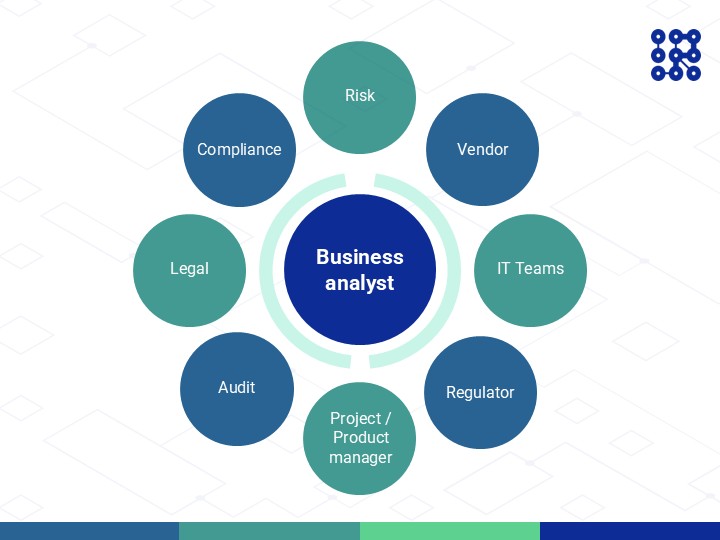Don't Gamble with Governance, Risk & Compliance: Why IT Business Analysis is the key to succesful GRC Implementation

Table of Contents
The Importance of IT Business Analysis in Governance, Risk, and Compliance (GRC)
In today’s complex regulatory environment, Governance, Risk, and Compliance (GRC) frameworks are no longer optional—they are essential for business success. Whether you’re a startup or a global enterprise, having a robust GRC system is critical to managing risk, ensuring compliance, and enhancing governance structures.
However, successfully implementing a GRC solution is more than just selecting software. Without proper IT business analysis, organizations risk costly errors, inefficiencies, and compliance failures. This is where the IT Business Analyst (BA) plays a crucial role.
Why IT Business Analysts Are Essential for GRC Implementation
Many organizations rush into GRC implementation without fully understanding their business needs, regulatory requirements, or existing risk management gaps. This often leads to:
- Misalignment with business objectives
- Costly redevelopment efforts
- Integration challenges with existing systems
- Low adoption rates among users
A skilled IT Business Analyst helps bridge the gap between business stakeholders, compliance teams, and technical experts to ensure the GRC system is tailored to your organization’s unique needs.
1️⃣ Understanding the "Why" Behind GRC Implementation
An IT BA acts as a translator between business and technology. They work closely with:
- Risk managers
- Compliance officers
- Internal auditors
- Legal teams
- IT architects and IT teams
- Vendors
- Project managers and Product Owners
By gathering detailed insights, an IT BA ensures the GRC tool is aligned with regulatory requirements, governance structures, and risk management strategies.

2️⃣ Defining the "What" – Clear Requirements for GRC Success
The GRC framework covers a broad scope, including:
✅ Governance: Roles, responsibilities, and decision-making structures
✅ Risk Management: Identifying, assessing, and mitigating business risks
✅ Compliance: Adhering to legal and regulatory standards
To define functional and non-functional requirements an IT Business Analyst helps, using tools like:
- Process Mapping (BPMN)
- Prototyping and wireframing
- Stakeholder interviews and workshops
3️⃣ Bridging the Gap Between Business and Technology
GRC implementation is not just about installing new software. It must integrate seamlessly with:
🔹 ERP and financial systems
🔹 IT security and access controls
🔹 Data governance and reporting tools
Without proper business analysis, GRC platforms can operate in silos, leading to integration complexities and inefficiencies.
4️⃣ Ensuring User Adoption & Process Optimization
Even the best GRC solution will fail if employees don’t understand how to use it. IT Business Analysts play a vital role in:
- Training stakeholders through workshops
- Developing user guides and materials
- Optimizing processes for efficiency and effectiveness
5️⃣ Measuring Success & Continuous Improvement
A well-implemented GRC system is not a one-time project—it requires ongoing evaluation. IT BAs help define Key Performance Indicators (KPIs) to measure:
📊 Regulatory compliance effectiveness
📊 Risk management improvements
📊 Operational efficiency gains
By tracking KPIs, organizations can continuously refine and optimize their GRC framework.
Conclusion: Don't Skimp on IT Business Analysis in GRC Implementation
Implementing a GRC solution is a complex but critical process. Without strong IT business analysis, companies risk inefficiencies, compliance failures, and costly mistakes.
💡 A skilled IT Business Analyst is the key to a smooth, efficient, and effective GRC implementation. Before starting your GRC journey, ensure you have the right experts in place to bridge the gap between governance, risk, compliance, and technology.
🚀 Is your organization planning a GRC implementation? Connect to us
An Example of a Client Case
Read more about our Services

Value Chain Analysis &
Business Analysis
Perform as-is and to-be Business Analysis on processes or entire value chains. Get insights in for instance your customer-, contract- or Trading Lifecycle (from pre- to post trade) and ensure the right use of technology.

Performance, Governance
Risk & Compliance
Navigate the risk landscape of your company, from Strategic to Operational and Financial to Non-Financial risks.

Business & Digital
Transformation
Realize and operationalise your business strategies by managing transformation programs.

Program & Project
Delivery
Define, manage and deliver Programs or Projects on time and within budget. We compliment this with advisory services to define, review and assess business and technology strategies and opportunities. Get ready for implementation and delivery with result!
